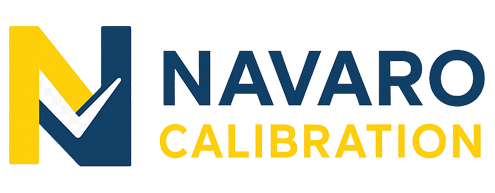No products in the cart.

In the world of process industries, pressure calibration is one of the most critical aspects of ensuring safety, efficiency, and compliance. From oil & gas plants to pharmaceutical laboratories, every pressure instrument—whether a pressure gauge, transmitter, or switch—must be calibrated regularly to guarantee accurate performance. This brings us to a common question asked by engineers and technicians worldwide:
Should you choose a digital pressure calibrator or an analog pressure calibrator?
Both have their advantages, and the right choice often depends on your specific application, industry requirements, and budget. In this article, we will compare digital and analog pressure calibrators in detail, explore their pros and cons, and help you decide which one suits your calibration needs best.
Understanding Pressure Calibrators
A pressure calibrator is an instrument used to generate, measure, and compare pressure readings against a known standard. They are essential for verifying the accuracy of pressure instruments in industrial environments.
You can explore our full range of pressure calibrators for a better overview of available options, including handheld models, benchtop systems, and multifunction calibrators.
What Is an Analog Pressure Calibrator?
Analog pressure calibrators are traditional devices that rely on mechanical elements such as Bourdon tubes, diaphragms, or piston gauges to measure and generate pressure.
Key Features of Analog Calibrators:
Simplicity – Easy to use with minimal training.
Durability – Built for rugged environments with fewer electronic components.
Cost-Effective – Usually more affordable compared to digital alternatives.
No Batteries Needed – Operates without requiring power.
However, analog calibrators can be limited when it comes to high-precision measurements. Reading a needle dial can sometimes introduce human error, especially when dealing with very fine pressure increments.
What Is a Digital Pressure Calibrator?
Digital pressure calibrators use electronic sensors to measure and display pressure readings on a digital screen. They are commonly found in modern industries where accuracy and traceability are critical.
Key Features of Digital Calibrators:
High Accuracy – Often more precise than analog devices, with resolution up to 0.01% of full scale.
Data Logging – Many models can record results for easy documentation.
User-Friendly Display – Clear, easy-to-read digital screens.
Multifunction Capability – Some models also measure temperature, current, or voltage, making them highly versatile.
For example, the Fluke 721 Dual Range Pressure Calibrator is widely used in gas custody transfer applications due to its accuracy and dual sensor capability.
Digital vs Analog: A Side-by-Side Comparison
| Feature | Analog Pressure Calibrator | Digital Pressure Calibrator |
|---|---|---|
| Accuracy | Moderate (±0.5–1% FS) | High (±0.025–0.05% FS) |
| Durability | Very rugged | Sensitive to harsh environments |
| Ease of Use | Simple, no power required | Easy digital readout, but requires batteries/power |
| Data Logging | Not available | Available in many models |
| Cost | More affordable | Higher investment |
| Applications | Field checks, rugged sites | High-precision labs, regulated industries |
Which One Should You Choose?
The choice between digital and analog pressure calibrators ultimately depends on your use case:
Choose Analog Pressure Calibrators if you work in rugged environments where durability and simplicity matter more than precision.
Choose Digital Pressure Calibrators if your work requires high accuracy, traceability, and data logging—for example, in pharmaceutical validation, aerospace testing, or energy sectors.
If you are still uncertain, consider a multifunction calibrator such as the Fluke 754 Documenting Process Calibrator, which offers both high precision and multi-parameter capability.
Conclusion
Both digital and analog pressure calibrators play important roles in industrial calibration. Analog models remain a practical choice for tough field conditions, while digital models dominate in precision-driven industries.
At Navaro Calibration, we provide a wide range of pressure calibrators, from rugged analog types to advanced digital solutions. Choosing the right tool depends on your specific needs—but with proper calibration, you can ensure safety, reliability, and compliance across all your pressure instruments.
